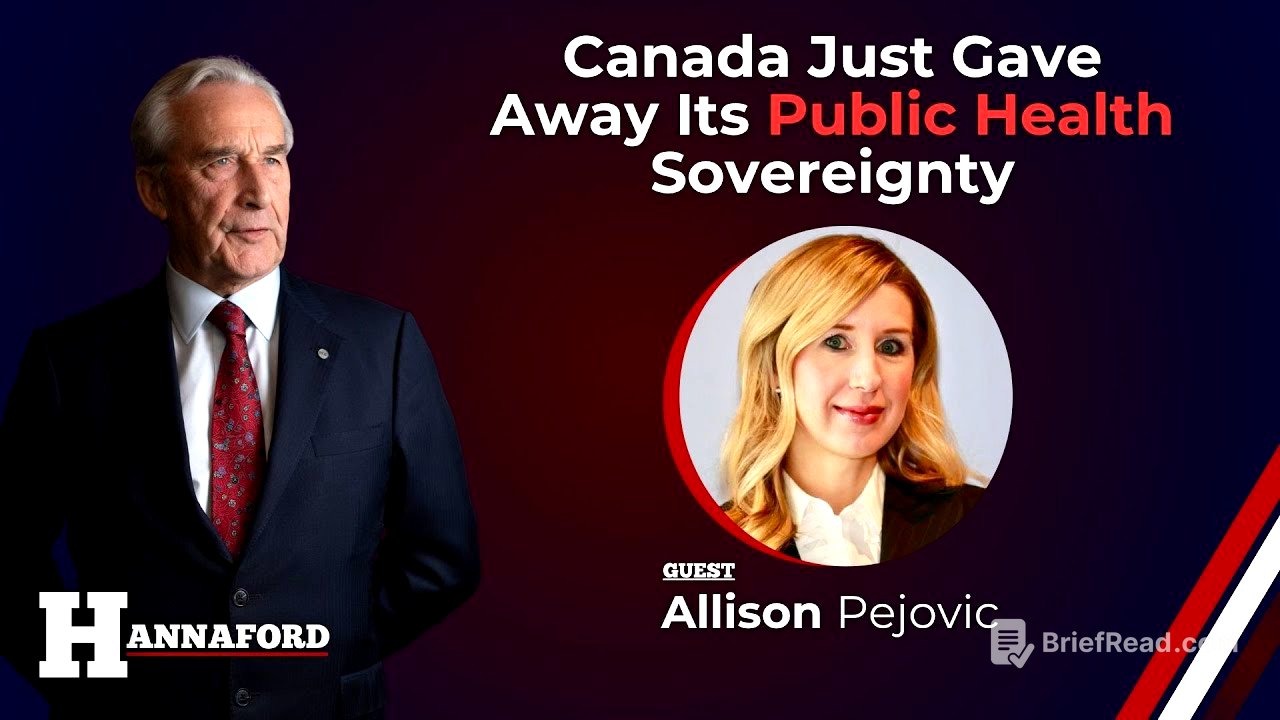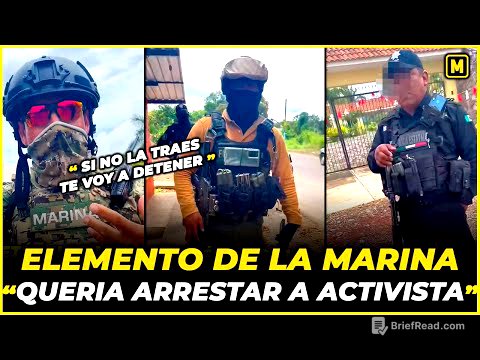TLDR;
This video discusses Canada's agreement to cede operational control of public health to the World Health Organization (WHO) in the event of a medical emergency. The discussion covers the implications of the WHO's International Health Regulations, amendments made to them, and potential impacts on Canadian sovereignty and individual freedoms. Key points include the speed at which countries are expected to respond to health emergencies, the suppression of dissenting information, and concerns about equitable distribution of health products.
- Canada has agreed to amendments to the International Health Regulations, potentially ceding more control to the WHO during health emergencies.
- The amendments emphasize rapid responses, raising concerns about the consideration of diverse opinions and scientific debate.
- There are concerns about the suppression of "misinformation" and "disinformation," potentially leading to censorship and stifling of dissenting voices.
- The concept of "equity" in health product distribution raises concerns about potential discrimination and unequal access to treatments.
Introduction: Canada's Agreement with WHO [0:16]
Nigel Hannerford introduces the topic of Canada's recent agreement to give the World Health Organization (WHO) operational control over public health during medical emergencies. He expresses concern that this move effectively hands over Canadian sovereignty and control to an international body. Ellison Piovich, a constitutional lawyer, joins the discussion, agreeing that the amendments to the International Health Regulations (IHR) could make it more difficult for provinces to adopt different approaches during health crises.
COVID-19 Measures and WHO Regulations [2:07]
The discussion shifts to the measures implemented during the COVID-19 pandemic that can be traced back to the WHO regulations. Piovich explains that provincial public health officers used their powers to impose lockdowns, restrict gatherings, and close churches, following the WHO's guidance. Hannerford points out that Article 18 of the IHR from 2005 already recommended measures such as proof of vaccination, quarantine, and health observation.
Amendments to the International Health Regulations [3:55]
Piovich explains that recent amendments to the IHR require countries to act even more rapidly during health emergencies. This means potentially shutting down schools, businesses, and churches immediately, with little time for scientific evaluation or debate. While Canada doesn't have an army to enforce these regulations, Canada has agreed to be bound by them, implementing them through domestic legislation such as the Quarantine Act and Public Health Acts.
Federalism and Provincial Authority [5:51]
The amendments also include language requiring countries to coordinate responses nationally, which raises concerns about federal overreach in countries like Canada and the United States, where provinces and states traditionally have significant authority over health matters. Piovich suggests that provinces like Alberta might want to have different responses in future pandemics, referencing Florida's and South Dakota's differing approaches during COVID-19. She notes that uniform responses across the country, dictated by the federal government, could be detrimental.
Inconsistencies and Double Standards During COVID-19 [7:20]
Hannerford and Piovich discuss inconsistencies in COVID-19 regulations across different provinces, such as the differing treatment of churches and restaurants in British Columbia and Alberta. Piovich recalls a case in Manitoba where churches were closed while movie sets and NHL practices were allowed to continue, highlighting the perceived double standards. She recounts how government lawyers were allowed to sit together in a boardroom while the court case was held via video conference. She argues that such inconsistencies erode public confidence and make it harder to enforce restrictions.
The Suppression of Information and Dissent [15:53]
The conversation turns to the WHO's focus on combating "misinformation" and "disinformation." Piovich connects this to Prime Minister Trudeau's use of similar language to dismiss questions about vaccines and lockdowns. She points out that the amendments include a section requiring states to develop core capacities for risk communication, including addressing misinformation and disinformation, which she interprets as potential censorship. She references the CEO of YouTube who censored and removed thousands of dissenting voices during COVID-19 at the request of the Biden administration.
Challenging the Government and WHO [21:26]
Hannerford suggests that the Canadian government, with the WHO's support, wants to discourage any challenge to their pronouncements on health matters. Piovich agrees, noting Trudeau's past statements linking unvaccinated individuals to misogyny and racism.
Equity vs. Equality in Health Product Distribution [22:30]
Piovich discusses the United States' decision not to fully support the amended IHR, citing concerns about language related to the equitable distribution of health products. She explains that "equity" differs from "equality," potentially leading to certain groups being prioritized over others based on factors like race or religion. She says that the US Health Secretary was concerned about the speed at which the WHO wants countries to respond, which could limit dissenting opinions and scientific debate.









